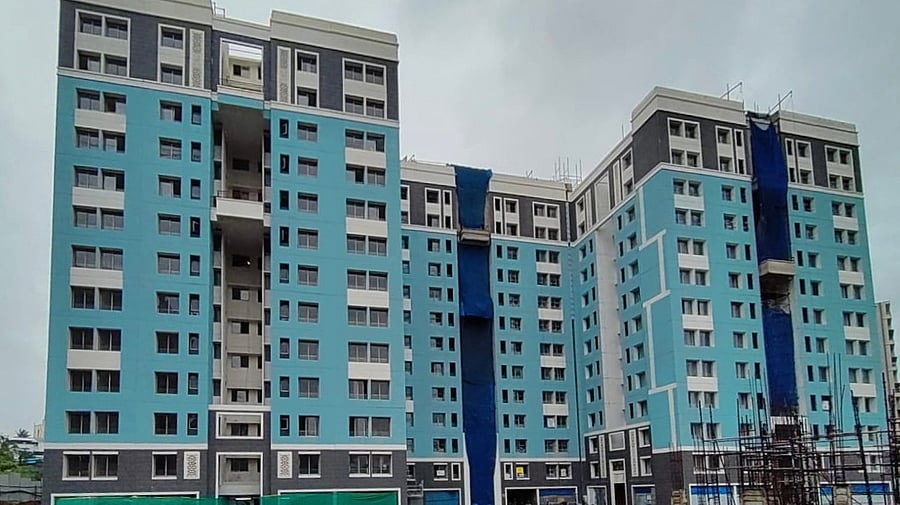
The new policy, it is said, will look at simplifying procedures in the affordable housing segment and ensure coordination among multiple departments - housing, urban development, revenue and so on.
Credit: DH File Photo
Bengaluru: Karnataka is drafting a new Affordable Housing Policy, which may include a mandate for private realty developers to set aside a percentage of their projects for buyers belonging to the economically weaker sections (EWS), according to preliminary discussions.
The new policy is being drafted by the Indian Institute of Human Settlements (IIHS), an urbanisation-focussed research organisation co-founded by billionaire tech mogul Nandan Nilekani, veteran banker Deepak Parekh and others. The IIHS has been roped in for this by skipping the tender process.
According to sources in Housing Minister BZ Zameer Ahmed Khan’s office, discussions are underway to include a clause in the new policy requiring private developers to earmark inventory for EWS citizens. At present, residential layouts have to set aside space for civic amenities such as parks and playgrounds.
Affordable housing is big on Chief Minister Siddaramaiah’s agenda. The new policy, it is said, will look at simplifying procedures in the affordable housing segment and ensure coordination among multiple departments - housing, urban development, revenue and so on. The new policy will replace the one the government prepared in 2016. Having a new policy would help Karnataka get more funds for housing schemes of the union government, sources said.
The government has been struggling to see fruition of its affordable housing programmes due to funding issues.
Take the Chief Minister’s One Lakh Housing Scheme for example. The per-unit cost is Rs 11.2 lakh of which beneficiaries need to pay Rs 7.7-8.5 lakh. Since beneficiaries are unable to pay - reluctance of banks to lend being the major reason - the potential burden on the government is pegged at Rs 3,700 crore.
The government is already examining two models on affordable housing recommended by Boston Consulting Group (BCG), the finance department’s consultant on augmenting revenues.
In one model, the government will provide land to a private developer. The private developer will use 30-50% of the land to construct affordable housing units as per government guidelines. After construction, the units are handed over to the government for allotment. The remaining land can be used by the developer for monetisation.
The other model aims to lower the burden on beneficiaries with a 3-5% interest subsidy, which may cost the government Rs 60-170 crore annually.
BCG has explained the proposal thus: for a home loan of Rs 7.6 lakh, the monthly installment at 11% interest will be Rs 8,700. With a 3-5% interest subsidy, it will be down to Rs 5,500-6,800.
